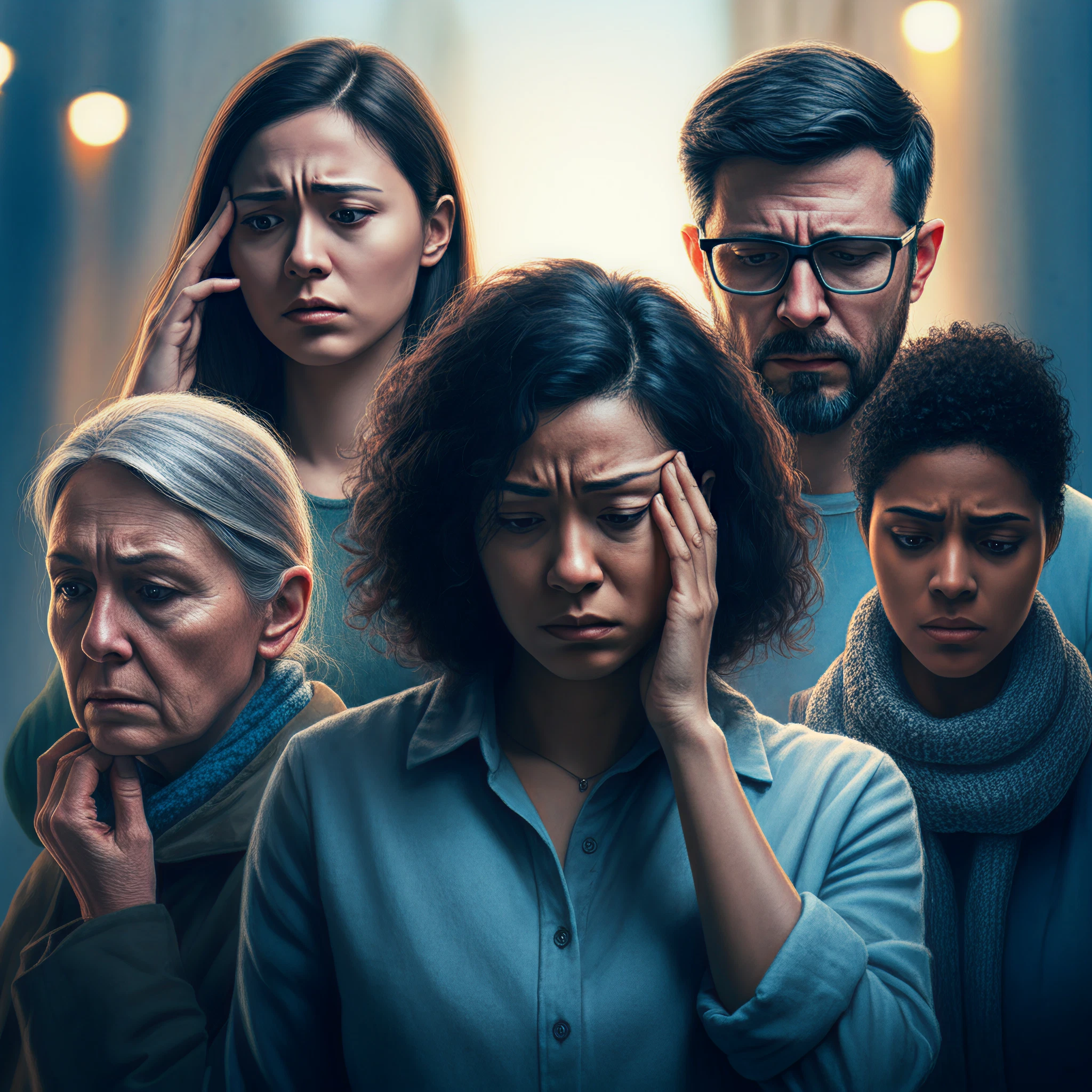Anxiety is a common part of life, but for many, it can be an overwhelming and persistent challenge. Recognizing the signs of anxiety can help sufferers identify their struggles, seek care, and start their recovery. While anxiety symptoms vary widely, understanding the subtle ways it manifests can benefit both those experiencing it and the supportive individuals around them.
This guide explores six key signs of anxiety that you can watch out for in yourself or others, enabling better awareness and proactive support.
What Is Anxiety?
Simply put, anxiety is the brain’s reaction to perceived threats. It triggers a heightened state of alertness, often tied to excessive worry, fear, or nervousness about everyday situations.
While mild anxiety may be manageable, generalized anxiety disorder (GAD), panic disorder, or social anxiety often interfere with daily life, requiring attention and treatment. If any of the following signs resonate with you or someone you know, it might be worth seeking advice from a healthcare professional.
The 6 Signs of Anxiety to Look Out For
1. Disrupted Sleep
If you or someone you know frequently complains about poor sleep or constant fatigue, anxiety could be the culprit. Those with anxiety often experience:
- Struggles falling or staying asleep.
- Frequent nightmares or night terrors.
- Restlessness due to racing thoughts.
Anxiety heightens adrenaline production, preparing the body for a «fight-or-flight» response, which makes relaxation and sleep challenging. Nighttime can feel worse for sufferers as there are fewer distractions to keep intrusive thoughts at bay.
2. Difficulty Concentrating
Anxiety can impair focus. If you observe someone repeatedly forgetting details, struggling to follow conversations, or zoning out during tasks, anxiety might be a contributing factor.
This often stems from ruminating over negative scenarios or potential threats, which diverts mental energy away from day-to-day responsibilities.
3. Changes in Eating Habits
Anxiety has a deep connection to eating patterns. This can manifest in two ways:
- Loss of appetite: Those with anxiety may feel physically incapable of eating due to nausea or stress.
- Binge eating: Others may overeat or consume comfort foods as a coping mechanism to numb emotions.
Eating disorders and anxiety are frequently co-occurring conditions, magnifying the difficulty of recovery without proper treatment.
4. Social Withdrawal or Isolation
When anxiety becomes excessive, people may avoid stressful social interactions and prefer solitude. If someone who is usually lively and engaged suddenly withdraws, it’s worth checking in with them.
According to Rachel Boyd from mental health charity Mind, anxiety sufferers often spend much of their energy planning escape routes or avoiding situations that heighten their symptoms.
5. A Need for Constant Reassurance
It’s normal to seek reassurance occasionally, but a noticeable increase in the need for validation could signal anxiety. Those suffering may:
- Frequently ask for affirmation about their decisions.
- Appear less confident in areas they once were secure.
This need for reassurance is often tied to low self-esteem, fear of failure, or worry about negative outcomes.
6. Physical Health Symptoms
Anxiety doesn’t just affect the mind; it impacts the body too. Common physical symptoms include:
- Chest tightness or shortness of breath during panic attacks.
- Digestive issues, such as nausea or diarrhea.
- Eczema or other stress-related skin concerns.
For some, anxiety revolves around health worries, leading to heightened sensitivity to physical sensations or fears of having a serious illness.
Understanding these physical manifestations can help normalize these experiences and encourage prompt medical intervention.
Take the First Step Toward Awareness and Support
If any of these signs resonate with you or someone you know, know that there’s always help available. You don’t have to manage anxiety alone. Awareness is the first step to acknowledgment and change.
If it feels overwhelming to know where or how to start, consider reaching out to a mental health provider or a trusted professional for guidance. Recognizing the signs of anxiety early on can pave the way for a better understanding and a healthier, happier future.
Need further advice or resources? Remember, seeking support from a professional is a strength, not a weakness. Take control of your well-being today!








